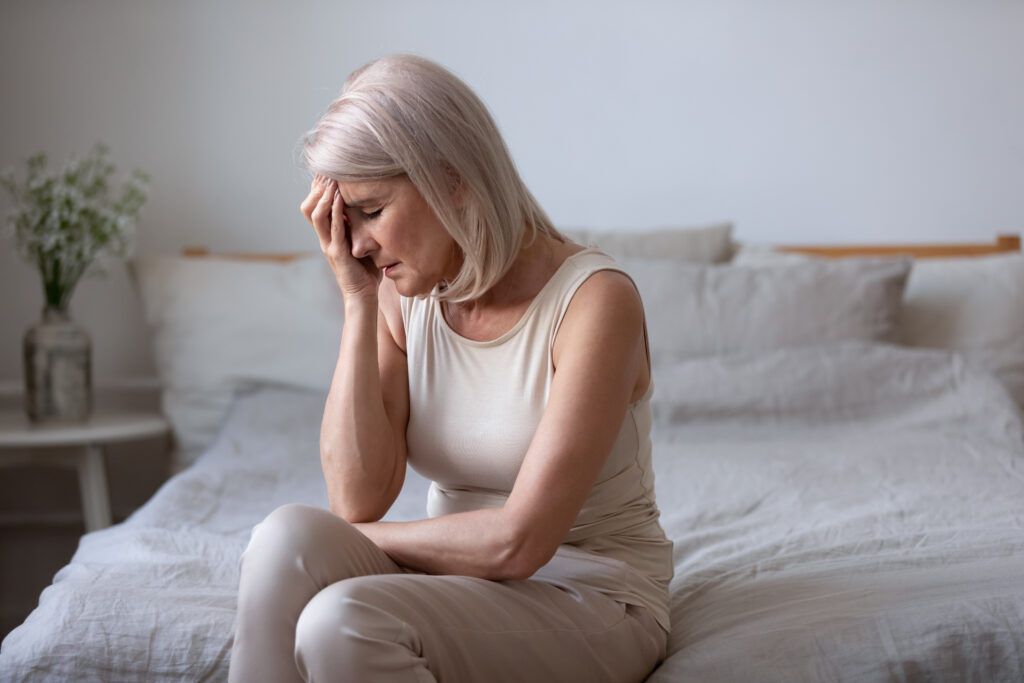Menopause, Sleep Disruptions, and Weight

Hormones and sleep have a closer connection than many people realize. The connection between hormones and sleep becomes more important to understand, especially as women age. Declining estrogen levels, as women enter menopause, is a common cause of insomnia. Night sweats after menopause are also a big cause of sleep disruption for women and their partners. But menopause sleep problems like insomnia and night sweats are just the beginning. The pace and incredible stresses of today’s world means that getting good sleep is even more important to our overall health and wellbeing, as well as to maintaining a healthy weight.
Menopause Sleep Problems
Estrogen plays a key role in brain function, so it affects memory issues, language, the ability to focus, and sleep. This is why insomnia during menopause is so common. Of course, there are many additional risk factors that can also affect sleep: too much screen time before bed, poor diet, vitamin deficiencies, excessive alcohol consumption, side effects of sleeping pills, blood pressure and heart meds, antidepressants, and other medications or other health issues.
Menopause & Weight Gain
As women age, it becomes harder to fight the battle of the bulge. Hormonal imbalances and the body disruptions caused by decreased levels of hormones are the underlying culprits. Perimenopause and menopause can also be stressful for many women. Added to daily stressors, it can trigger weight gain, which is also closely associated with sleep loss. In other words, the hormonal imbalances associated with menopause create a vicious cycle.
Solutions for Menopause Sleep Problems
While sleep medications can be helpful in the short term, they’re not generally recommended for long-term use as they can be physically and psychologically addictive and also increase some health risks. Establishing a nightly “shut down and unwind” or sleep hygiene ritual with regular sleep and waking times is important. Avoiding caffeine late in the day, and shutting off television and computers after 9 PM or even earlier is also a good sleep hygiene practice.
If changing your environment, and cutting down stimulants like caffeine and alcohol doesn’t help, consulting a sleep professional along with a hormone specialist can help determine if underlying hormonal imbalances are working against you. From there, an appropriate treatment plan can be created to address your particular sleep issues.
To learn more about sleep health, attend one of our our upcoming Community Health Talks. Visit our website to see our full calendar of events HERE.

